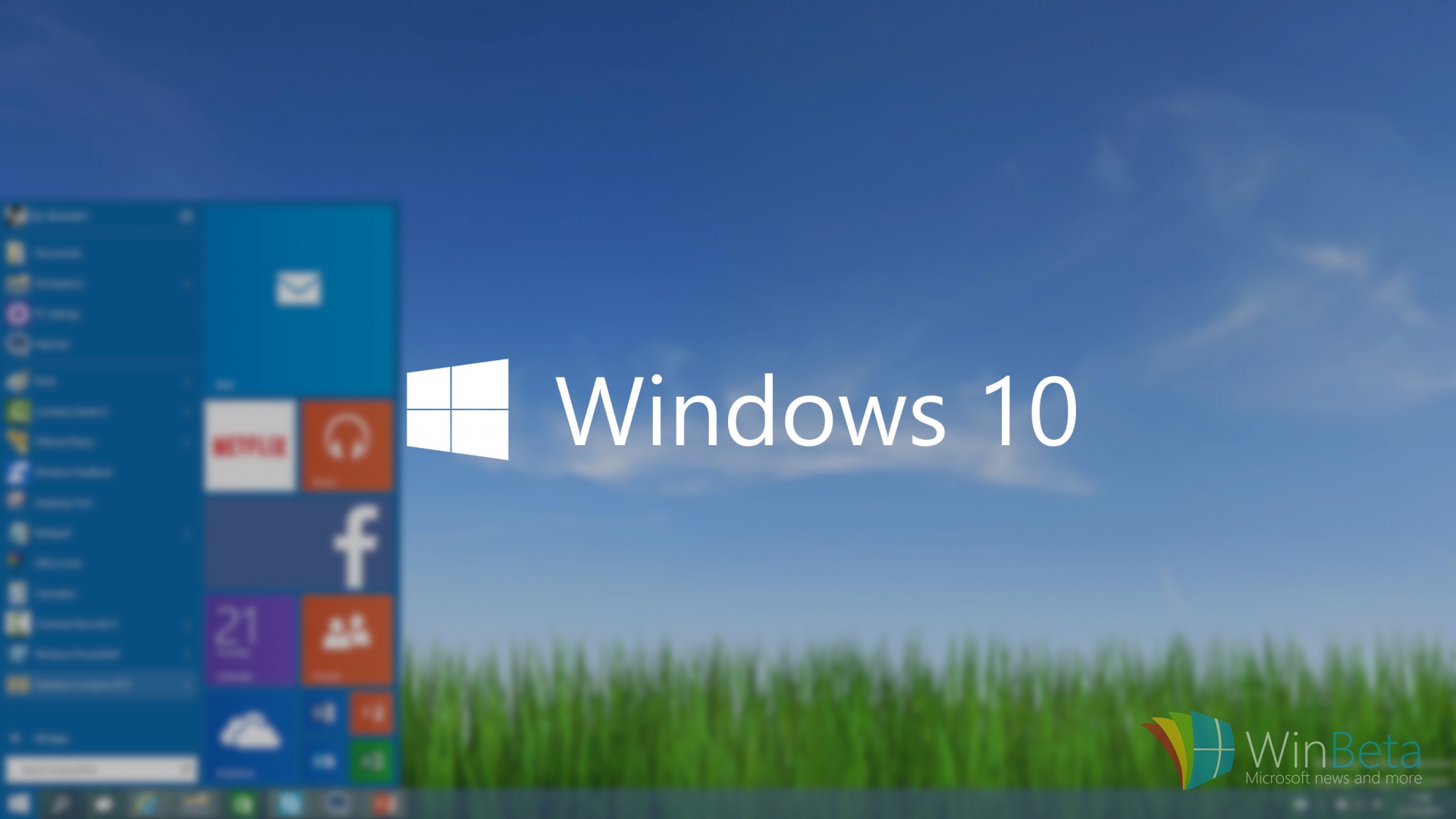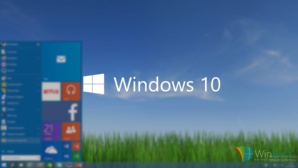The news quickly spread through the network, and a number of foreign media wrote that the Windows 10’s default settings allow it to read e-mails, save the history of the location and access to confidential data. All this information is used by the new browser Edge, built in the new OS with a view to the selection of advertising. Moreover, the popular "Solitaire" now also includes advertising and personal assistant Cortana does plays freely with personal data.
Many users have expressed doubt that such a large-scale collection of personal data will be used exclusively for recruitment advertisements. These fears are not unfounded in the light of the sensational scandal of massive spying by the US secret services.
For the first 24 hours after the official release of the final version of Windows 10, the number of devices, operating under its control, has reached 14 million. It’s easy to imagine the amount of approximately information already collected about the first "lucky ones."
- I was very surprised to learn of such an extent of intervention and data collection. And even more amazing to me is that Microsoft put these settings by default. I am sure that most people will take them without inquiring the details, and will not even imagine how much information they give, - said web developer Jonathan Port.
Porta argues that the language used by Microsoft, is too vague and does not explain to users what data is collected and for what purpose. In addition, Windows 10 can transmit this information not only to Microsoft, but to "trusted partners" as well.
Another expert, Alec Myer, adds that the operating license agreement has a clause under which Microsoft will store the data, including confidential user information, and access to them when deemed necessary.
The portal Business Insider spoke with Microsoft to clarify the company's policy regarding the collection of personal data and their use. The corporation said they did not sell the information or use it for advertising purposes. "We provide access to this data to a narrow circle of developers who improve and correct our products", - said representatives of Microsoft.
In the meantime, all the users, who have pre-ordered the platform, received a copy of the new operating system. Microsoft limits the upgrade to Windows 10, so some owners of computers based on Windows 7 and Windows 8 / 8.1 will have to wait for their turn from a couple of days to several weeks.
5 million people have connected to the program Windows Insider, which allows installing a preliminary version of Windows 10 and try out almost all the new features of the product, in return giving to Microsoft feedback on the system. These PCs are among the 14 million devices based on Win 10.
Microsoft recently announced the biggest quarterly loss of $ 3.2 billion, or 40 cents per share, revenue fell 5.1% to $ 22.18 billion. However, the loss is obliged to one-time write-off of Microsoft related to the rejection of the brand Nokia. The restructuring of assets, acquired in the past year, cost $ 7.5 billion, so that if we exclude this factor, Microsoft ended the quarter with a good profit.
As for Windows, the demand from manufacturers in the operating system has fallen by 22%. Sales of Windows in the corporate world have fallen by 21% year on year, when demand was fueled by the cessation of support for Windows XP. The company has high hopes for Windows 10, but so far the figures are alarming.
However, the report has positive aspects, associated with the advancement of cloud assets. The CEO Satya Nadella said that the future of his company is directly related to the expansion in this niche, and so far, all the figures have confirmed that Nadella guessed the trend.
The main difference between contracts in the area of cloud is in increased monetization period. Many products bring the money not immediately, but gradually. Therefore, Microsoft’s part of proceeds evolved from a quarterly to a longer-term measure, and it is in this way we should perceive the current trend.
Revenue that specified in the contract, but not yet received (off-balance-sheet-revenue), reached a historic high - $ 24.5 million. The lion's share of the money that Microsoft has not put on its balance sheet, but will do so in the future, is provided by the cloud assets, operating on the basis of a paid subscription.
Many users have expressed doubt that such a large-scale collection of personal data will be used exclusively for recruitment advertisements. These fears are not unfounded in the light of the sensational scandal of massive spying by the US secret services.
For the first 24 hours after the official release of the final version of Windows 10, the number of devices, operating under its control, has reached 14 million. It’s easy to imagine the amount of approximately information already collected about the first "lucky ones."
- I was very surprised to learn of such an extent of intervention and data collection. And even more amazing to me is that Microsoft put these settings by default. I am sure that most people will take them without inquiring the details, and will not even imagine how much information they give, - said web developer Jonathan Port.
Porta argues that the language used by Microsoft, is too vague and does not explain to users what data is collected and for what purpose. In addition, Windows 10 can transmit this information not only to Microsoft, but to "trusted partners" as well.
Another expert, Alec Myer, adds that the operating license agreement has a clause under which Microsoft will store the data, including confidential user information, and access to them when deemed necessary.
The portal Business Insider spoke with Microsoft to clarify the company's policy regarding the collection of personal data and their use. The corporation said they did not sell the information or use it for advertising purposes. "We provide access to this data to a narrow circle of developers who improve and correct our products", - said representatives of Microsoft.
In the meantime, all the users, who have pre-ordered the platform, received a copy of the new operating system. Microsoft limits the upgrade to Windows 10, so some owners of computers based on Windows 7 and Windows 8 / 8.1 will have to wait for their turn from a couple of days to several weeks.
5 million people have connected to the program Windows Insider, which allows installing a preliminary version of Windows 10 and try out almost all the new features of the product, in return giving to Microsoft feedback on the system. These PCs are among the 14 million devices based on Win 10.
Microsoft recently announced the biggest quarterly loss of $ 3.2 billion, or 40 cents per share, revenue fell 5.1% to $ 22.18 billion. However, the loss is obliged to one-time write-off of Microsoft related to the rejection of the brand Nokia. The restructuring of assets, acquired in the past year, cost $ 7.5 billion, so that if we exclude this factor, Microsoft ended the quarter with a good profit.
As for Windows, the demand from manufacturers in the operating system has fallen by 22%. Sales of Windows in the corporate world have fallen by 21% year on year, when demand was fueled by the cessation of support for Windows XP. The company has high hopes for Windows 10, but so far the figures are alarming.
However, the report has positive aspects, associated with the advancement of cloud assets. The CEO Satya Nadella said that the future of his company is directly related to the expansion in this niche, and so far, all the figures have confirmed that Nadella guessed the trend.
The main difference between contracts in the area of cloud is in increased monetization period. Many products bring the money not immediately, but gradually. Therefore, Microsoft’s part of proceeds evolved from a quarterly to a longer-term measure, and it is in this way we should perceive the current trend.
Revenue that specified in the contract, but not yet received (off-balance-sheet-revenue), reached a historic high - $ 24.5 million. The lion's share of the money that Microsoft has not put on its balance sheet, but will do so in the future, is provided by the cloud assets, operating on the basis of a paid subscription.






